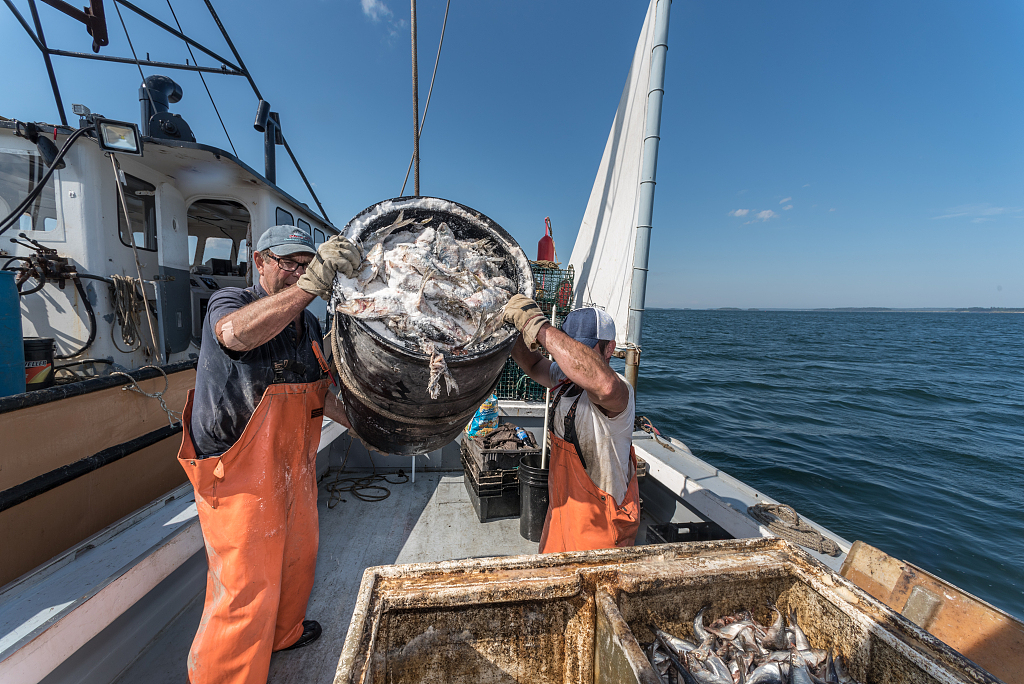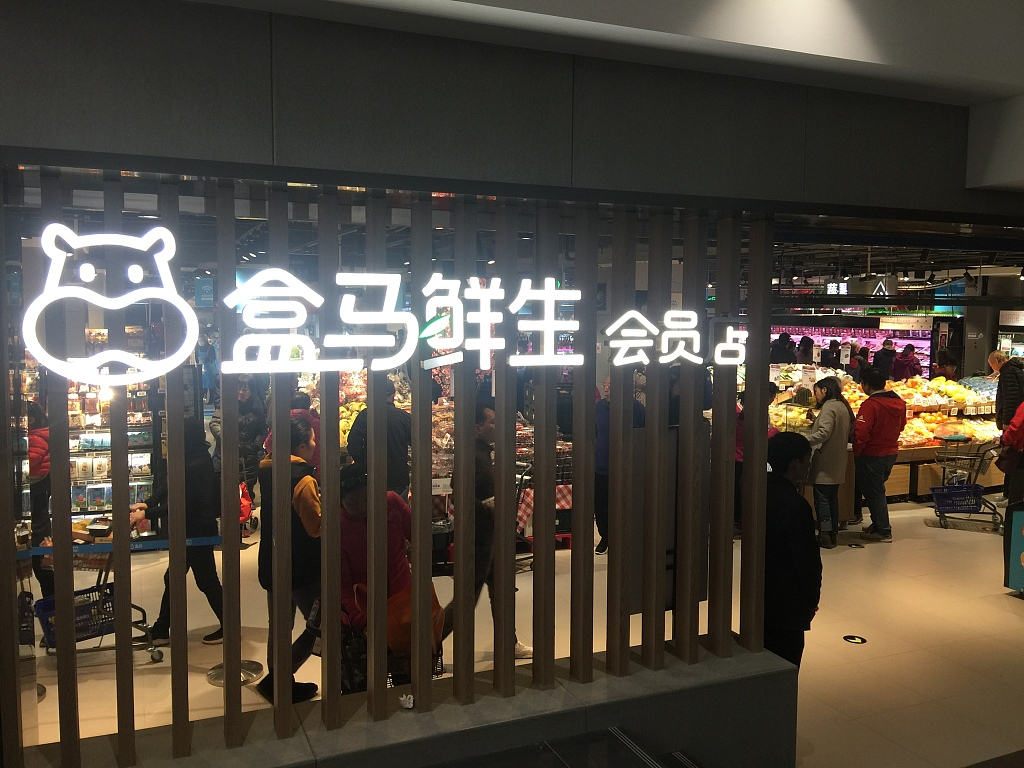
North America
19:40, 06-Jun-2019
With Maine lobsters missing from Chinese dining tables, who is suffering?
Updated
22:41, 06-Jun-2019
Bi Ran

Lobstermen in Maine have always hoped for a big catch to feed the growing appetite of Chinese diners – but not anymore.
Amid tit-for-tat tariffs between China and the U.S. as the country's trade dispute grinds on, seafood exports – Maine's top commodity to China – have landed in troubled waters.
Maine fishermen, who long depended on China to keep their business afloat, are now bearing the brunt of the protracted trade war as fewer orders are now being placed because of Chinese tariffs on U.S. seafood exports.

The seafood industry in Maine is a multi-million-U.S.-dollar industry. /VCG Photo
The seafood industry in Maine is a multi-million-U.S.-dollar industry. /VCG Photo
'Zero business'
Fresh and chilled lobsters make up 12.3 percent of Maine's total exports, which stood at 326 million U.S. dollars last year.
But the coast of Maine is becoming more quiet amid a slump in the numbers of lobsters sold to China.
Michael McKellar, one of the owners of Sea Salt Lobster, a seafood wholesaler and restaurant, told CGTN that once the Chinese tariffs came into effect, virtually all business to the Chinese market stopped.

A traditional Maine lobster meal. /VCG Photo
A traditional Maine lobster meal. /VCG Photo
"There has been an occasional order here or there on certain size lobsters that can be difficult to source at certain times of the year, but other than that... zero business."
His company ships seafood, mainly lobsters, to a number of Asian countries including South Korea, Singapore, Vietnam, Thailand. But China maintains the lion's share of their exports, with 95 percent of the Asia-bound lobsters destined to China.
Because of such high demand, any disruption from the Chinese side cannot be offset by other markets. Now, lower demand has hit Michael's business hard, with revenue shrinking by 25 percent.
With business slowly drying up, the owners had to take the tough decision of laying off workers and sending fewer boats out to sea.
Michael relied on simple math to explain the situation. He says there are no extra costs on him, and the workload has not changed. The price, also, has remained the same. But that's just half the story.
The added fee happens not in the U.S. but on the other side of the world.
A lobster worth 8 U.S. dollars a pound will be taxed according to regular duties as it goes through the Chinese customs. On top of that, a 25-percent additional levy, in place as a response to U.S. levies on Chinese products, making the price of lobsters higher for Chinese seafood lovers.
Compounding the issue is the fact that the tariffs are based on the pricier variety of similar items entering the Chinese market.
If Michael's lobsters are priced at 8 U.S. dollars a pound, and another company is sending lobsters worth 12 U.S. dollars a pound, the tariffs on lobsters would take the more expensive one as a base.
Somebody loses, somebody wins
But they say, one man's suffering, is another man's joy – and Canadian seafood suppliers can attest to that.
The bane of U.S. businesses has turned into a boon for Canadian companies in the same industry.
Prior to 2017, Canada did not have any lobster business with China. But the trade war between China and the U.S. offered Canadian lobstermen an opportunity to enter a growing market.
"They (Canadians) are able to ship with no tariffs and bring their lobsters across our borders to use U.S. airports with no cost to do so," said Michael.
Chinese e-commerce giant Alibaba Group is looking for partnerships with Canadian seafood suppliers to add more varieties of water dwellers to its online shopping platform. By introducing more small and medium-sized businesses (SMBs) from Canada to China's growing seafood consumers, Alibaba expects to see an increase in demand for Canadian seafood, including lobsters, shrimps, and clams.

Hema is an Alibaba-operated supermarket chain. /VCG Photo
Hema is an Alibaba-operated supermarket chain. /VCG Photo
Businesses on both sides, however, are hurting. And Chinese and the U.S. companies are waiting impatiently for negotiators to work out the differences and seek a resolution.
Michael believes "necessary pains" can be tolerated, but hopes the two countries can reach an agreement soon, so he and his co-workers can get back to continuing serving their customers, in Maine and further afield, and helping the local community by protecting jobs.
(Cover via VCG Photo)

SITEMAP
Copyright © 2018 CGTN. Beijing ICP prepared NO.16065310-3
Copyright © 2018 CGTN. Beijing ICP prepared NO.16065310-3